Astronomers have spotted the farthest galaxy ever
 Named HD1, the galaxy candidate is some 13.5 billion light-years away and scientists have begun to speculate exactly what the galaxy is.
Named HD1, the galaxy candidate is some 13.5 billion light-years away and scientists have begun to speculate exactly what the galaxy is.
Apr 7th, 2022
Read more
 Subscribe to our Space Exploration News feed
Subscribe to our Space Exploration News feed
 Named HD1, the galaxy candidate is some 13.5 billion light-years away and scientists have begun to speculate exactly what the galaxy is.
Named HD1, the galaxy candidate is some 13.5 billion light-years away and scientists have begun to speculate exactly what the galaxy is.
Apr 7th, 2022
Read more In two new papers, teams of Hubble astronomers are reporting on bizarre weather conditions on these sizzling worlds. It's raining vaporized rock on one planet, and another one has its upper atmosphere getting hotter rather than cooler because it is being 'sunburned' by intense ultraviolet (UV) radiation from its star.
In two new papers, teams of Hubble astronomers are reporting on bizarre weather conditions on these sizzling worlds. It's raining vaporized rock on one planet, and another one has its upper atmosphere getting hotter rather than cooler because it is being 'sunburned' by intense ultraviolet (UV) radiation from its star.
Apr 6th, 2022
Read more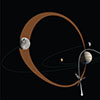 Juno spacecraft discovered clues about mysterious processes creating the dance of the auroral footprints.
Juno spacecraft discovered clues about mysterious processes creating the dance of the auroral footprints.
Apr 5th, 2022
Read more Gravitational waves could reveal whether general relativity must be modified at the edges of black holes.
Gravitational waves could reveal whether general relativity must be modified at the edges of black holes.
Apr 5th, 2022
Read more The Hubble Space Telescope has directly photographed evidence of a Jupiter-like protoplanet forming through what researchers describe as an 'intense and violent process'. This discovery supports a long-debated theory for how planets like Jupiter form, called 'disk instability'.
The Hubble Space Telescope has directly photographed evidence of a Jupiter-like protoplanet forming through what researchers describe as an 'intense and violent process'. This discovery supports a long-debated theory for how planets like Jupiter form, called 'disk instability'.
Apr 4th, 2022
Read more Theoretical model probes the origins of unexpectedly high-energy radiation from the aftermath of cosmic explosions.
Theoretical model probes the origins of unexpectedly high-energy radiation from the aftermath of cosmic explosions.
Apr 4th, 2022
Read more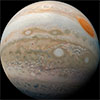 One of the most important open questions in planetary formation theory is the story of Jupiter's origin. Using sophisticated computer modelling, researchers now shed new light on Jupiter's formation history.
One of the most important open questions in planetary formation theory is the story of Jupiter's origin. Using sophisticated computer modelling, researchers now shed new light on Jupiter's formation history.
Apr 4th, 2022
Read more The NASA Perseverance rover, which has been exploring the Jezero Crater on Mars since February 2021, has recorded the acoustic environment of the red planet for the first time.
The NASA Perseverance rover, which has been exploring the Jezero Crater on Mars since February 2021, has recorded the acoustic environment of the red planet for the first time.
Apr 1st, 2022
Read more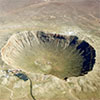 While for humans the constants might be death and taxes, for planets the constants are gravity and collisions.
While for humans the constants might be death and taxes, for planets the constants are gravity and collisions.
Mar 30th, 2022
Read more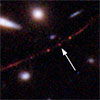 The Hubble Space Telescope has established an extraordinary new benchmark: detecting the light of a star that existed within the first billion years after the universe's birth in the big bang - the farthest individual star ever seen to date.
The Hubble Space Telescope has established an extraordinary new benchmark: detecting the light of a star that existed within the first billion years after the universe's birth in the big bang - the farthest individual star ever seen to date.
Mar 30th, 2022
Read more Using data from the VISTA survey of the Magellanic Clouds system, researchers confirmed the existence of elongated orbits which are at the backbone of the bar formation process.
Using data from the VISTA survey of the Magellanic Clouds system, researchers confirmed the existence of elongated orbits which are at the backbone of the bar formation process.
Mar 29th, 2022
Read more Scientists studying V Hydrae have witnessed the star's mysterious death throes in unprecedented detail.
Scientists studying V Hydrae have witnessed the star's mysterious death throes in unprecedented detail.
Mar 28th, 2022
Read more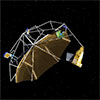 Eight teams selected to pioneer novel ways of designing and manufacturing large structures on orbit.
Eight teams selected to pioneer novel ways of designing and manufacturing large structures on orbit.
Mar 26th, 2022
Read more Astronomers reconstruct the turbulent past life of our home galaxy.
Astronomers reconstruct the turbulent past life of our home galaxy.
Mar 26th, 2022
Read more A new study examines moon formation and concludes that only certain types of planets could form moons that are large in respect to their host planets.
A new study examines moon formation and concludes that only certain types of planets could form moons that are large in respect to their host planets.
Mar 26th, 2022
Read more The planetary atmosphere outside the solar system can be revealed by measuring bandpass-dependent transit depths, according to a new study.
The planetary atmosphere outside the solar system can be revealed by measuring bandpass-dependent transit depths, according to a new study.
Mar 26th, 2022
Read more Scientists have discovered a new set of waves in the Sun that, unexpectedly, appear to travel much faster than predicted by theory.
Scientists have discovered a new set of waves in the Sun that, unexpectedly, appear to travel much faster than predicted by theory.
Mar 24th, 2022
Read more The further we move away from a heat source, the cooler the air gets. Bizarrely, the same can't be said for the Sun, but scientists may have just explained a key part of why.
The further we move away from a heat source, the cooler the air gets. Bizarrely, the same can't be said for the Sun, but scientists may have just explained a key part of why.
Mar 24th, 2022
Read more